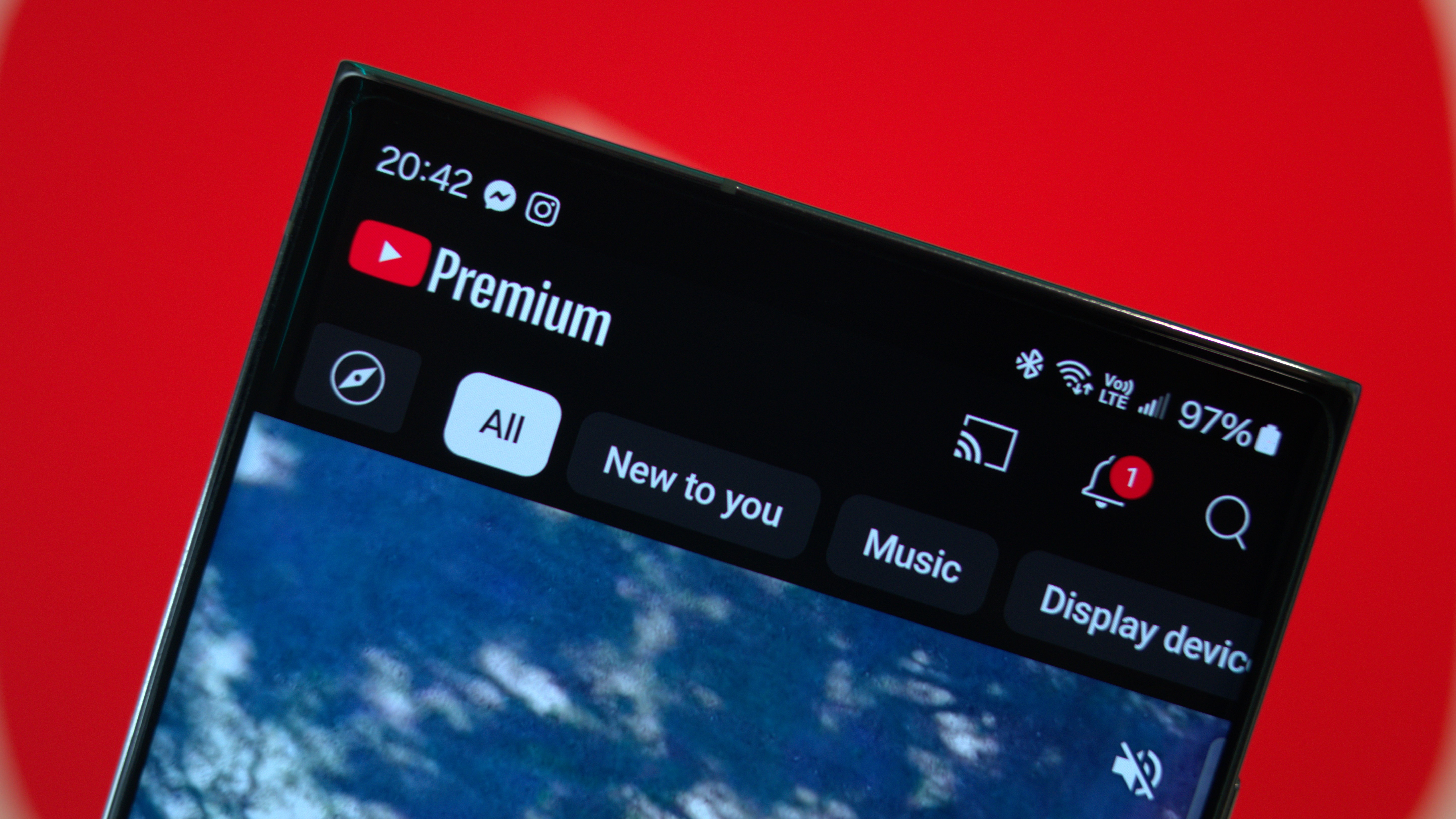Samsung Galaxy Watch 8 vs. OnePlus Watch 3: Playing the value game
The Samsung Galaxy Watch 8 is a more versatile watch, but it's hard to ignore the immense value offered by OnePlus.
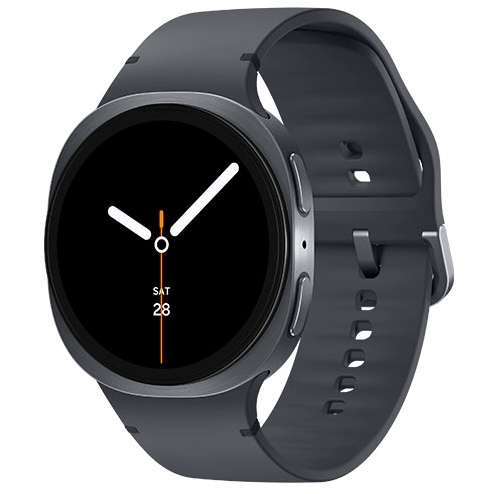
The new Galaxy Watch
Just as the rumors suggested, the new Samsung Galaxy Watch 8's design is inspired by the Watch Ultra. It's slimmer, lighter, and comes with new health tracking metrics. It's more expensive compared to the OnePlus Watch 3, but you're also getting longer software support and highly accurate data tracking.
Pros
- An all-new "innovative" build
- Expanded health and fitness capabilities leveraging Samsung's BioActive sensor
- Gemini integration with Wear OS 6
- Thinner design
Cons
- Battery life not as good as OnePlus
- More expensive
- Galaxy Watch Ultra-like design won't be for everyone
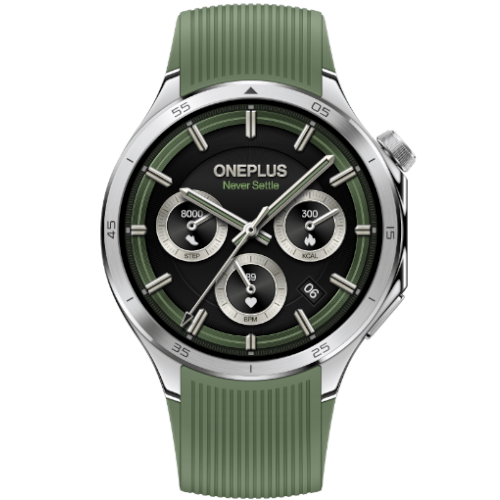
Giant size, giant features
The OnePlus Watch 3 delivers outstanding battery life for a Wear OS watch with newfound fitness capabilities. It has a great OLED screen, a rotating crown, and an aggressive design.
Pros
- Industry-leading four to six-day battery life
- Improved health and fitness tracking
- Supports versatile 22mm watch bands
- Now available in a smaller size
Cons
- No LTE connectivity support
- Just two Wear OS updates supported
While OnePlus hasn't released nearly as many Wear OS smartwatches as Samsung, its current OnePlus Watch 3 is nothing to scoff at. The wearable takes the crown for the longest-lasting Wear OS watch with true multi-day battery life, and it isn't crazy expensive. Can the Samsung Galaxy Watch 8 offer better performance and value proposition?
If you asked Samsung that, the company would probably say yes. Samsung is touting many new improvements in the Galaxy Watch 8 like the big redesign, Gemini control, and new health and fitness features. All of this comes at a high(er) price though. Let's see which one offers better value for money.
Samsung Galaxy Watch 8 vs. OnePlus Watch 3: Design and display
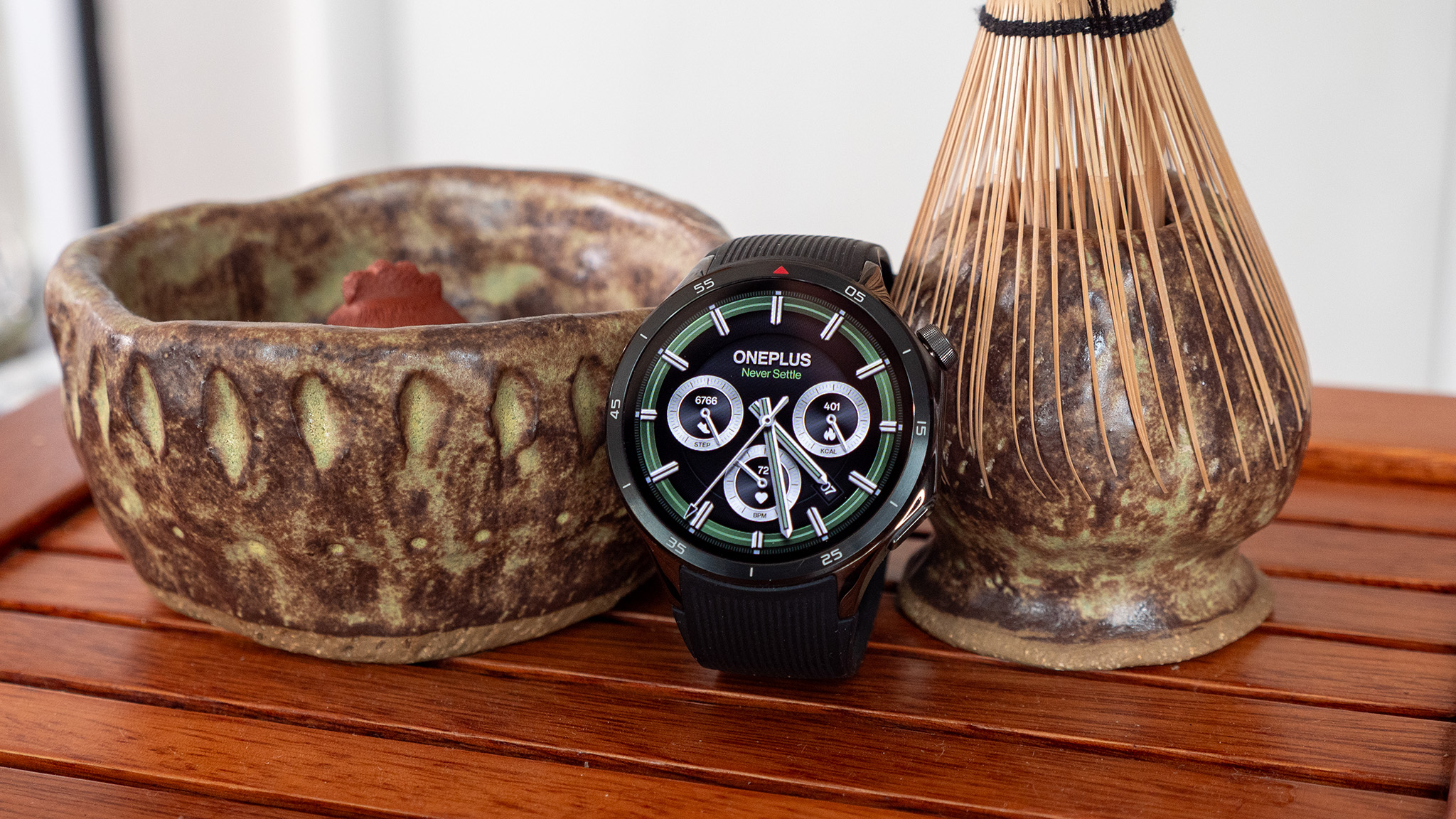
Samsung has made the Galaxy Watch 8 Classic's design more aggressive and bulky, but thankfully has kept the Watch 8 looking more sober. There's still hints of the Watch Ultra in it, but it's been diluted.
The OnePlus Watch 3 on the other hand is big and large, and features quite a noisy design. For all those that have avoided the Watch 3 for its size, OnePlus recently launched a 43mm Watch 3 to address these concerns. Neither versions support LTE though.
Samsung has two sizes of the Galaxy Watch 8, and each one comes with either Wi-Fi or LTE options. This gives buyers much better choice when it comes to picking the features they want.
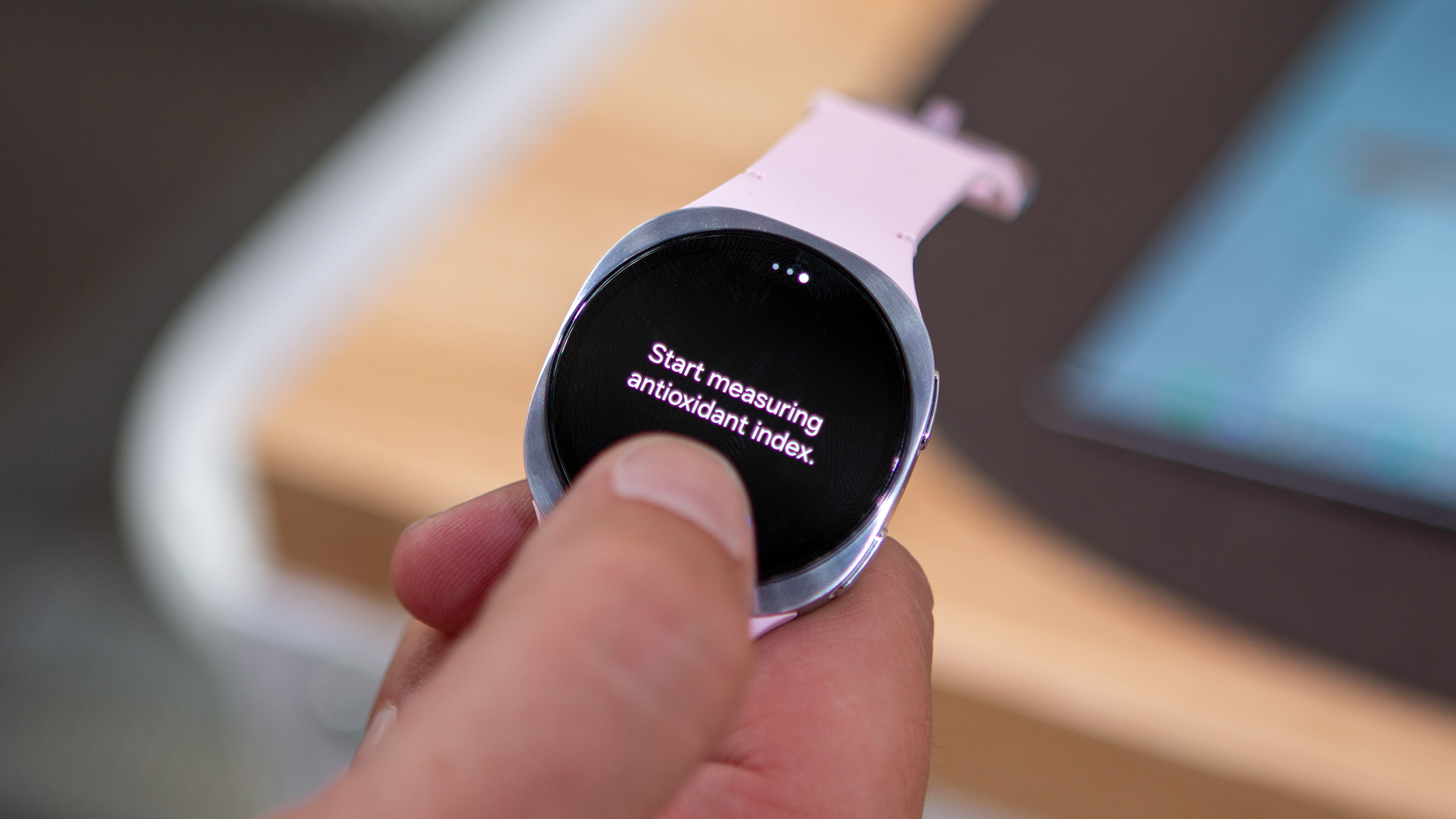
The OnePlus Watch 3 is less versatile, no matter how good its specs are on paper. The giant smartwatch measures 46.6 x 47.6 x 11.75mm, and weighs 81 grams with the included strap. For perspective, the Galaxy Watch 8's 44mm variant only weighs 34 grams with the strap.
You have to like big watches to love the OnePlus Watch 3, but if you do, the smartwatch can be a true Galaxy Watch Ultra or Apple Watch Ultra competitor on a budget.
Get the latest news from Android Central, your trusted companion in the world of Android
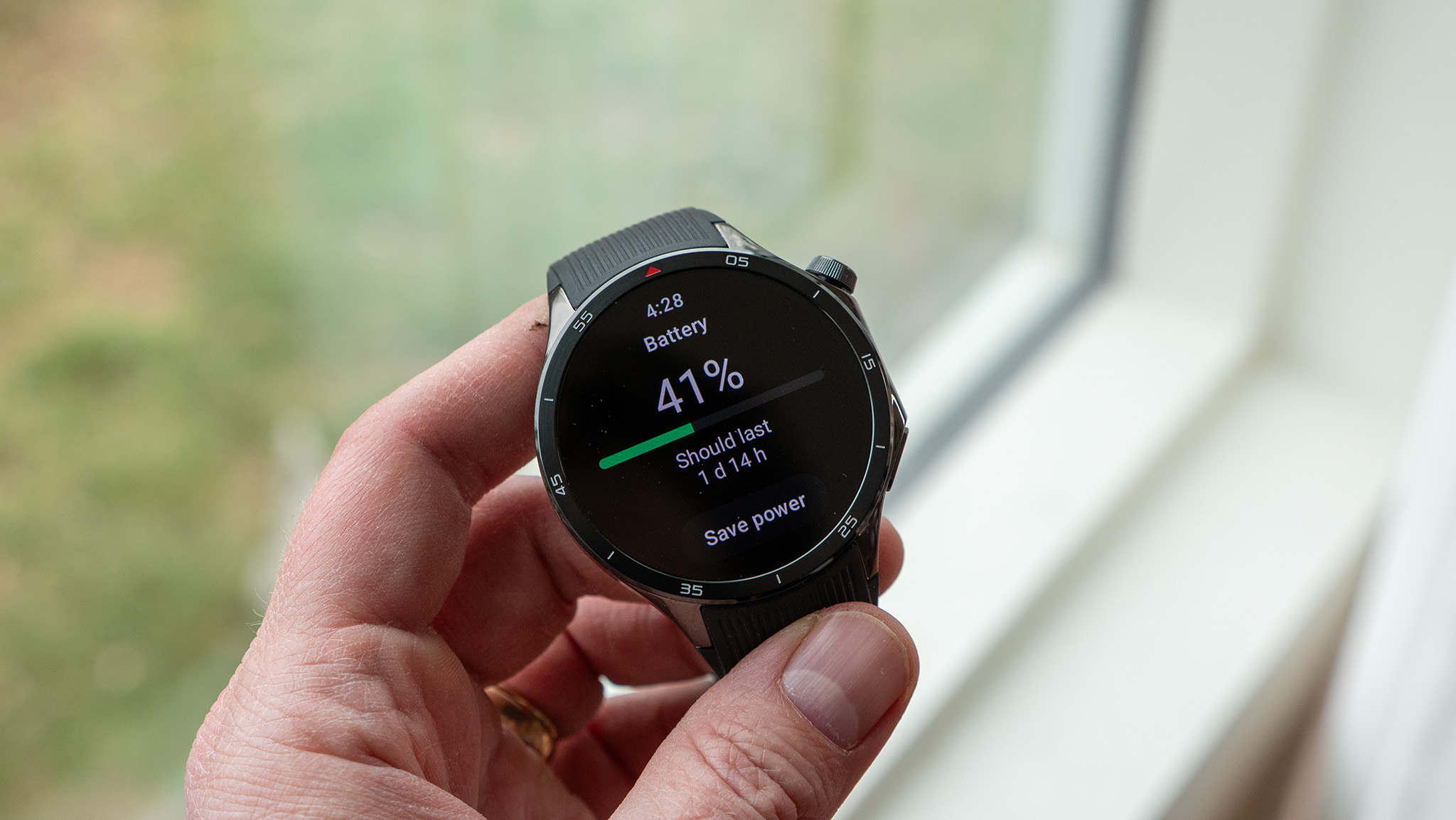
The OnePlus Watch 3 46mm features a 1.5-inch (466 x 466) LTPO AMOLED display, capable of reaching a peak brightness of 2,200 nits. The screen is bright and beautiful, and OnePlus' colorful Wear OS skin helps the entire operating system pop. It's also now available in a smaller 43mm size with a 1.3-inch display.
By comparison, the Galaxy Watch 8 is offered in either 40mm (1.34-inch, 438x438) or 44mm (1.47-inch, 480x480) Super AMOLED displays. This almost matches the size and resolution of the past few generations of Galaxy Watch.
Samsung Galaxy Watch 8 vs. OnePlus Watch 3: Hardware and specs
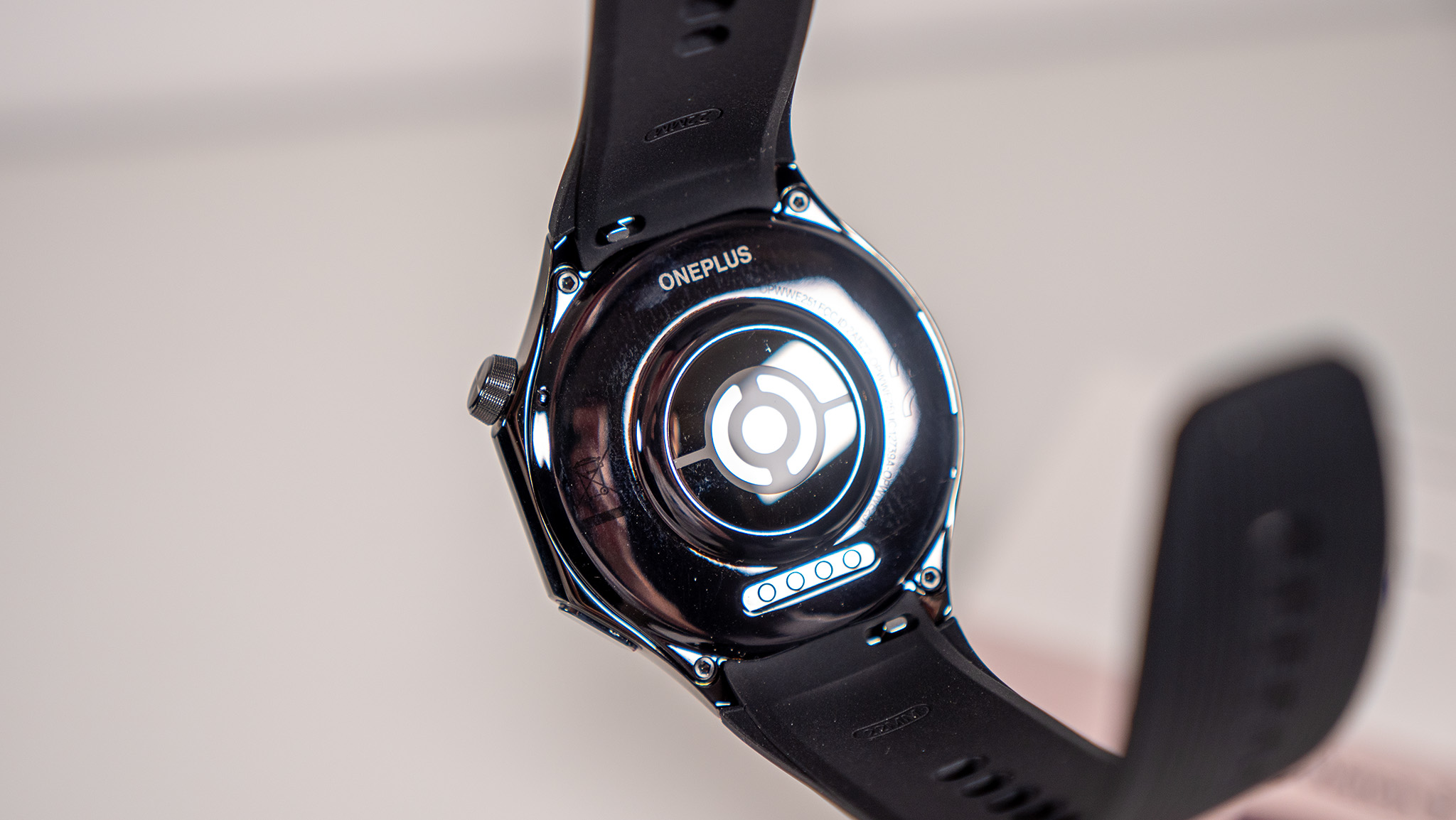
Samsung has a clear advantage when it comes to health sensors on the Galaxy Watch 8. It packs the new optical bio-signal sensor (Samsung BioActive) introduced with the Galaxy Watch 7, and in turn, gets new health monitoring metrics. Vascular Load monitoring and Antioxidant Index are the new metrics that can be tracked using the Watch 8. The latter reading requires you to remove the watch and hold your thumb against the rear sensors in order to work. I'm not certain if this is going to be a huge selling point for the watch, but it's a neat addition to have.
Category | Samsung Galaxy Watch 8 | OnePlus Watch 3 |
|---|---|---|
Display | 40mm (1.34-inch, 438x438) or 44mm (1.47-inch, 480x480) Super AMOLED display, 3,000 nits | 46mm (1.5-inch, 466x466) or 43mm (1.32-inch, 466x466) LTPO AMOLED, 2,200 nits |
Protection | Sapphire Crystal glass, 5ATM, IP68, MIL-STD-810H | MIL-STD-810H, IP68, 5ATM, sapphire crystal glass |
Materials | Armor Aluminum case | Titanium bezel (46mm), stainless steel case |
Connectivity | Bluetooth 5.3, Wi-Fi 2.4/5GHz, NFC, LTE (optional), dual-band GPS, Galileo, Glonass | Bluetooth 5.2, WiFi 2.4/5GHz, NFC, GPS (L1 + L5), Beidou, Galileo, GLONASS, QZSS |
Sensors | Samsung BioActive Sensor (Optical Bio-signal Sensor + Electrical Heart Signal + Bioelectrical Impedance Analysis), Temperature Sensor, Accelerometer, Barometer, Gyro Sensor, Geomagnetic Sensor, Light Sensor | Optical HR, SpO2, ECG, wrist temperature, accelerometer, barometer, geomagnetic, gyroscope, light |
Battery | 300mAh/435mAh | 631mAh/354mAh |
Charging | Fast charging | 24 hours in 10 minutes; 100% in 30 minutes (46mm) or 1 hour (43mm) |
RAM / storage | 2GB / 32GB | 2GB / 32GB |
OS | One UI 8 Watch (Wear OS 6) | Wear OS 5 and RTOS |
Colors | Silver, Graphite | Emerald Green, Black (46mm), Silver Steel, Black Steel (43mm) |
On the other hand, OnePlus will have a clear battery life advantage with the OnePlus Watch 3. The 46mm version uses a massive 631mAh battery and two operating systems — Wear OS 5 and RTOS — to minimize power draw for basic functions. That's how you can get multi-day battery life on the OnePlus Watch 3 and the ability to get full-day battery life with a 10-minute charge.
The Samsung Galaxy Watch 8 keeps the 40-hour battery life estimate we've seen on prior models, so it won't compete with the OnePlus Watch 3 any more than current watches can. Battery capacity of the 40mm model has been bumped up slightly to 325mAh, but the 44mm model has the same 325mAh capacity as the Watch 7.
Samsung Galaxy Watch 8 vs. OnePlus Watch 3: Software
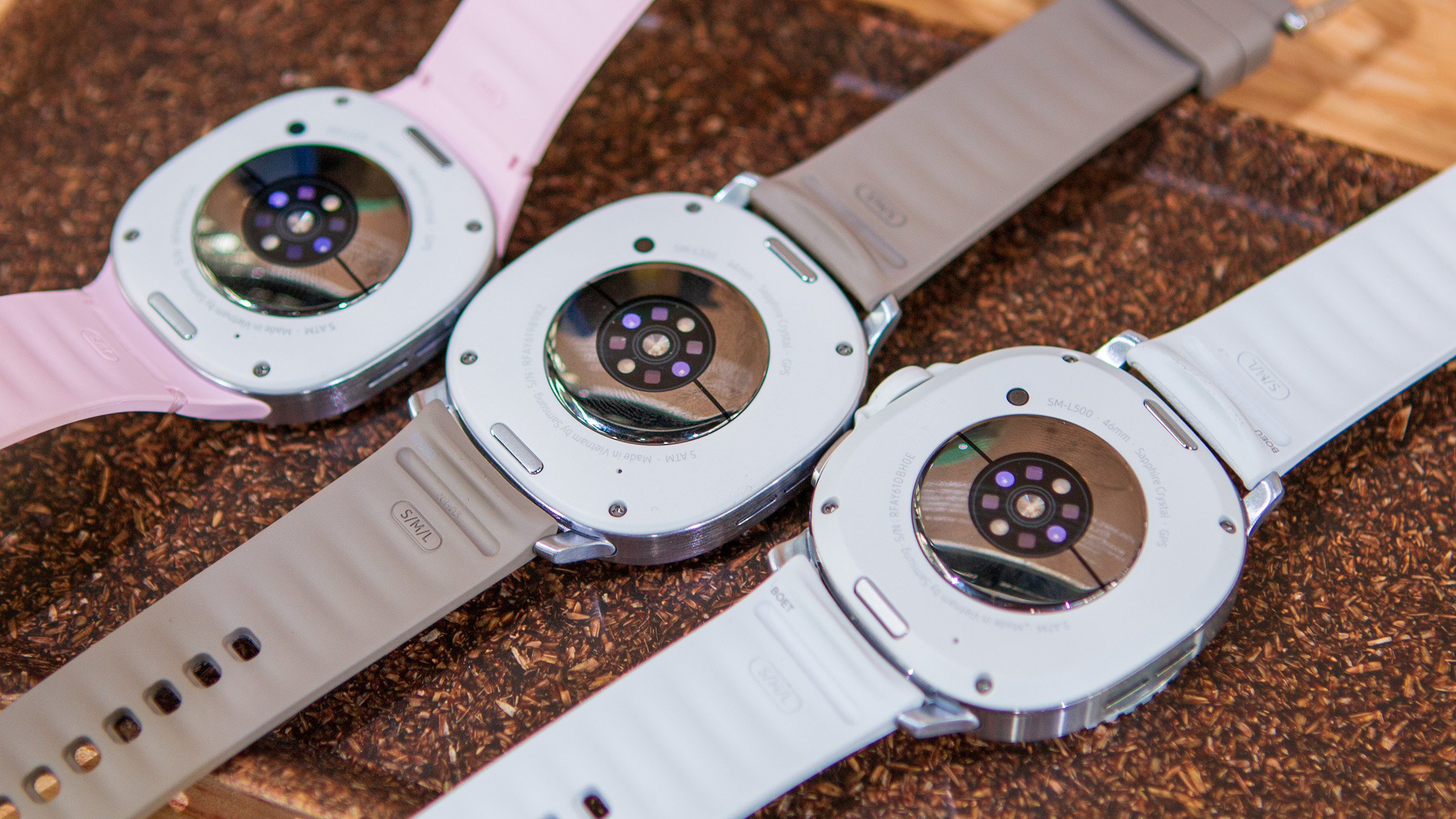
The Samsung Galaxy Watch 8 launches with a software advantage, at least for a short time. It ships with Wear OS 6, the latest version of Wear OS with Gemini integration and efficiency improvements. Some smartwatch models will get a 10% bump in battery life simply by upgrading to Wear OS 6, according to Google. The Galaxy Watch 8 should conceivably offer longer battery life than the Watch 7, but I don't see it beating the OnePlus Watch 3.
The OnePlus Watch 3 runs Wear OS 5, but could get all these upgrades with a later upgrade to Wear OS 6. Its use of Wear OS 5 and RTOS guarantees that the Watch 3 will have better battery life than the Galaxy Watch 8, regardless of Wear OS 6 improvements. The OnePlus Watch 3 could get even better battery life with future upgrades.
Samsung Galaxy Watch 8 vs. OnePlus Watch 3: Worth the premium?
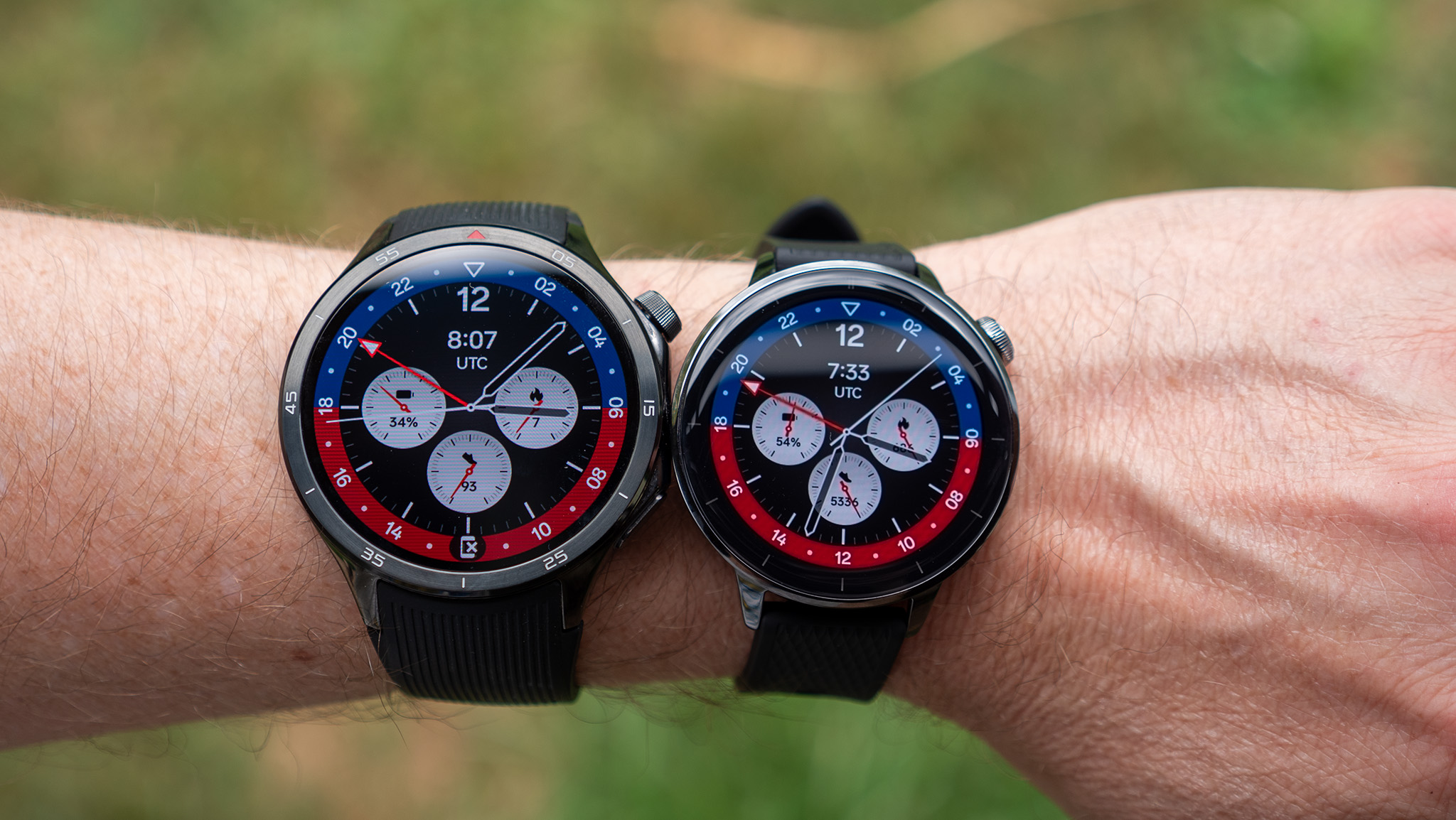
If you don't need LTE and are not too finicky about tracking super-accurate data, the OnePlus Watch 3 is a fantastic option. The new 43mm size is perfect for those who have smaller wrists, plus you get all the same great dual-processor features and slick OS of the larger model. Battery life takes a bit of a beating, but it should still be as good as the Galaxy Watch 8.
If you don't have a set budget and simply want the best smartwatch that tracks health and fitness data accurately, it's hard to beat the Galaxy Watch 8. It's thinner and lighter, just as rugged, even though it may not look it, and has much longer software support.

A big redesign
While the Samsung Galaxy Watch 8 won't beat the OnePlus Watch 3 in battery life or size, it does have a few tricks up its sleeve. A more robust health and fitness suite, plus options for LTE, are a few reasons why you might want to pay a premium for the Galaxy Watch 8.

Best for battery life
If you want a big Wear OS smartwatch with a super-long battery life, the OnePlus Watch 3 is your choice. It's fairly affordable while being an industry-leader in battery life and fast charging with multi-day support.

Brady is a tech journalist for Android Central, with a focus on news, phones, tablets, audio, wearables, and software. He has spent the last three years reporting and commenting on all things related to consumer technology for various publications. Brady graduated from St. John's University with a bachelor's degree in journalism. His work has been published in XDA, Android Police, Tech Advisor, iMore, Screen Rant, and Android Headlines. When he isn't experimenting with the latest tech, you can find Brady running or watching Big East basketball.
- Roydon CerejoContributor
You must confirm your public display name before commenting
Please logout and then login again, you will then be prompted to enter your display name.
